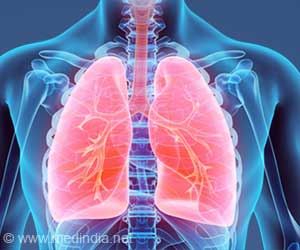A recent study has found that a gene that protects the body during respiratory illness can cause autoimmune disorders
- Genes are the building blocks of our inheritance
- Scientists claim that the same gene called ERAP2, which still protects us against respiratory infections, can also increase the risk of autoimmune diseases
- This study helps understand the concept of how the same gene can have different effects on various diseases
The Gene that Protects Against Plague May Cause Arthritis
The same genes that helped some of our ancestors fight the plague are still likely to be at work in our bodies today, potentially providing some of the population with extra protection against respiratory diseases such as COVID-19, according to research led by scientists at The University of Bristol. However, there is a trade-off, where the same variation is also linked to increased autoimmune diseases such as rheumatoid arthritis and inflammatory bowel disease.Previous studies have revealed that survivors of the Black Death, the devastating bubonic plague pandemic in the Middle Ages, were more likely to carry certain variants called alleles in a gene called ERAP2 than those who didn’t survive.
What does a Gene Mean?
The gene is considered the basic unit of inheritance. Genes are passed from parents to offspring and contain the information needed to specify physical and biological traits. Most genes code for specific proteins, or segments of proteins, which have different functions within the body. Humans have approximately 20,000 protein-coding genes.In new research published in The American Journal of Human Genetics, Dr. Fergus Hamilton and co-authors from the university’s MRC Integrative Epidemiology Unit (MRC IEU), in collaboration with colleagues at the universities of Edinburgh, Oxford, Cardiff, and Imperial College London, reveal that the same variants are present in humans today and provide similar protection against not only bubonic plagues but also other infections, including pneumonia and COVID-19. However, this is a situation of balance, and the same genetic makeup is likely to be linked with increases in various autoimmune diseases.
Same Gene, Different Functions
“This gene essentially chops up proteins for the immune system,” explained lead author Dr. Hamilton, Wellcome GW4 Clinical Doctoral Fellow at the MRC IEU and North Bristol NHS Trust. “Although we don’t know the exact mechanism influencing disease risk, carriers of alleles that provide more protection against respiratory disease seem to have an increased risk of autoimmune disease. It is potentially a great example of a phenomenon termed ‘balancing selection’ - where the same allele has a different effect on different diseases.”Dr. Hamilton and colleagues looked at infection, autoimmune disease, and parental longevity across participants in three large contemporary genetic studies. They used an analytical technique known as Mendelian Randomization to find associations between variations in the ERAP2 gene and the risk of autoimmune disease and infection.
Their findings point to antagonistic effects across these two groups of diseases driven by pressures likely to be more or less present in different human eras.
Nicholas Timpson, Professor of Genetic Epidemiology at the MRC IEU and co-author, added: “This is a theoretical story of balance - relating to historical and contemporary disease profiles, which reflect our past and are rarely seen in real human examples.”
What it Means for Future Treatments
Identifying links between genetics and susceptibility to disease can pave the way for potential treatments. However, it also highlights potential challenges; therapeutics to target ERAP2 are currently being developed to target Crohn’s disease and cancer, so it is important to consider potential effects on the risk of infection from these agents.Reference:
- Variation in ERAP2 has opposing effects on severe respiratory infection and autoimmune disease - (https://pubmed.ncbi.nlm.nih.gov/36889308/)
Source-Medindia












